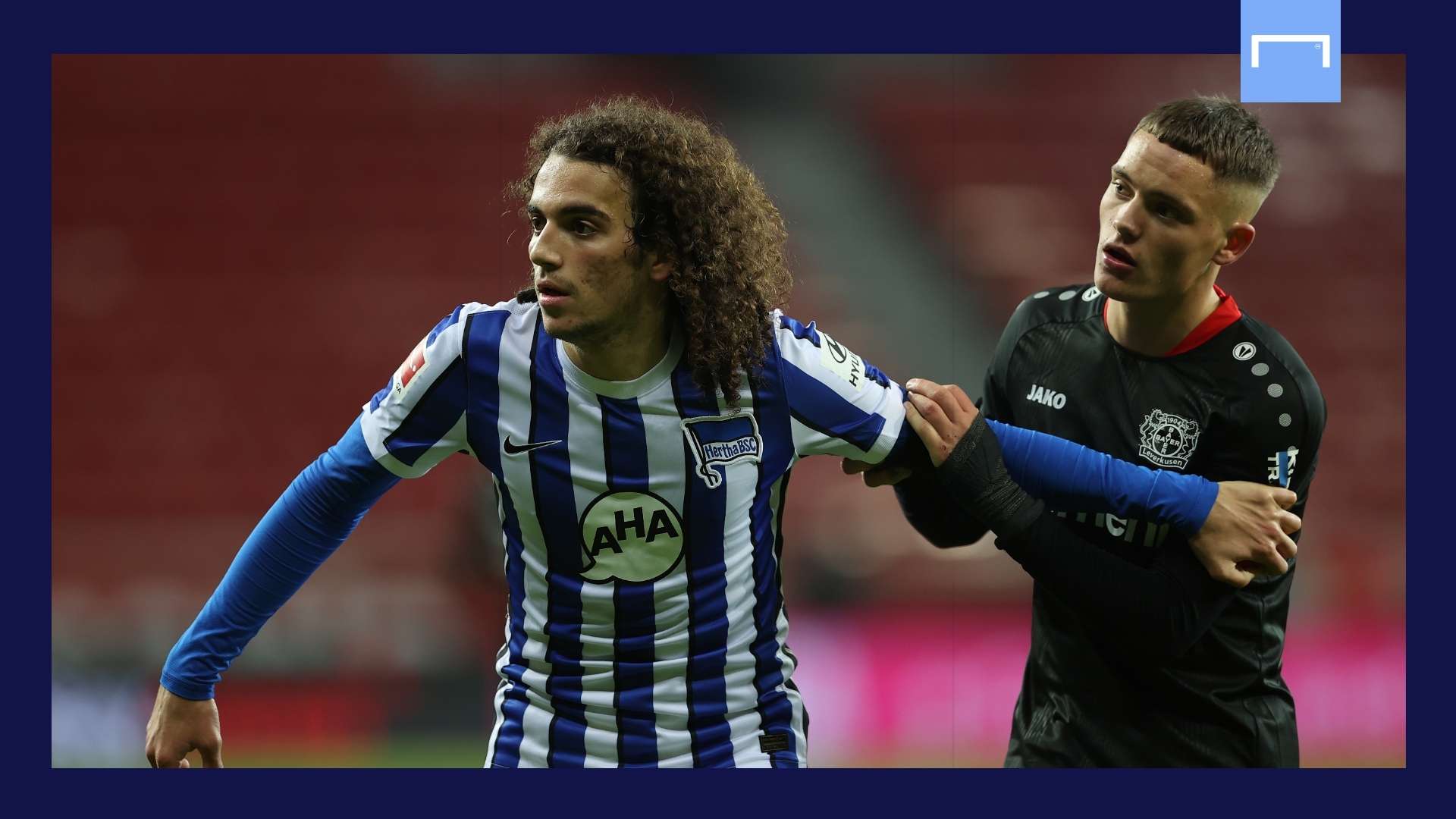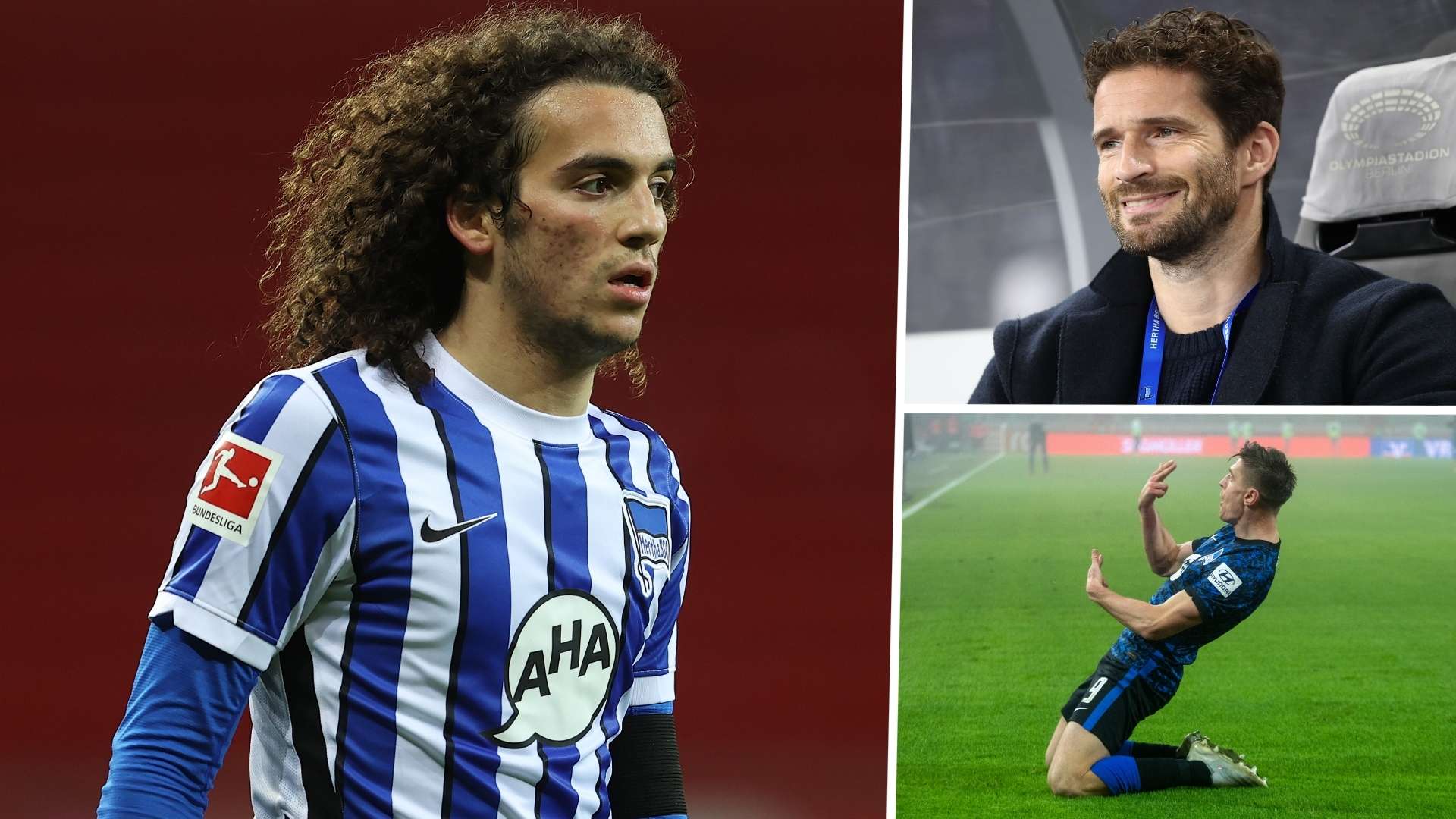Berlin is Germany's biggest city and, in most cases, that would be enough for footballing relevance. Most of the world's top clubs reside in Europe's biggest cities, with London, Barcelona, Madrid, Milan, Paris and Manchester housing some of the game's most transcendent teams.
However, while Berlin is a hub of German culture, it is not a hub of German football. Hertha Berlin, the city's biggest club, have won just four domestic trophies in their history, with the most recent coming in 2002.
They lag far, far behind clubs like Bayern Munich and Borussia Dortmund, who have come to be Germany's most recognised and successful teams in recent years.
So, how does a club change that? How can Hertha Berlin push towards relevancy, both internationally and locally? What can they do to allow them to dream of escaping a history largely filled with mediocrity?
Well, a bit of money is a good start.
This summer, investor Lars Windhorst announced he was going to pump another €150 million (£135m/$169m) into the club. This comes after he invested €224 million (£190m/$250m) last year. The aim? To break Hertha out of its shell and push it to a place that the club has never seen.
"Berlin is known everywhere in the world actually, but the soccer club still isn't really," sporting director Arne Friedrich said, "and this is also one of the main targets for all of us: to do some work and to bring our soccer club into the world."
Hertha's push towards increased relevance began last season. The club made a bold managerial hire by turning to the legendary Jurgen Klinsmann, lifting the club into a spotlight brighter than it had seen in quite some time.
But that spotlight only revealed just how far Hertha were behind their rivals. Klinsmann lasted just 10 weeks before he bizarrely resigned, explaining that he did so because of the club's lack of investment.
That claim came despite the fact that Hertha spent more than any other European club during the winter window, bringing in players like Krzysztof Piatek from AC Milan and Matheus Cunha from RB Leipzig.
After Bruno Labaddia steadied the ship to keep the seemingly relegation-bound club in the Bundesliga, Hertha made several big moves once again this summer.
Despite the coronavirus pandemic handcuffing teams all over Europe, Hertha were able to sign a new starting striker Jhon Cordoba and a new goalkeeper Alexander Schwolow, while also bolstering the midfield with Matteo Guendouzi on loan from Arsenal.
 Getty/Goal
Getty/Goal
It was part of what Friedrich sees as a much-needed rebuild. The club moved on from long-time regulars Per Ciljan Skjelbred, Vedad Ibisevic and Soloman Kalou, and they did so by navigating a tricky transfer market.
"We are very, very blessed to have an investor and he helped us a lot. It was a little like a fairy tale, actually. Our situation is definitely way better than the situation of most clubs, but also it's connected to some problems," Friedrich said.
"When we face the transfer window, obviously, we were looking for players and everyone knew about our investor.
"So, when we went into the negotiations, some prices were insane. You have players that you look for and they asked for twice of the money that he’s worth. It doesn't make it easy for us.
He added: "Negotiations are sometimes very, very funny but, in the end, we didn't give in. We made very, very careful choices and I think with the players that we got, we are very, very happy."
But transfers are only one piece of the puzzle. The commercial aspect of this sport looms large, especially as Bayern continue to develop into a global behemoth matched only by a handful of clubs in the world.
Like Bayern and Hoffenheim, Hertha are exploring American partnerships, Friedrich says. Its important for the club to expand its reputation outside of Germany, and that comes in one of two ways: partnerships or on-field success.
So far, the latter has been lacking. Those new signings have taken time to gel, and those departures have loomed large.
Through nine matches, Hertha sit 13th in the Bundesliga, having won only twice all season ahead of Friday's derby against Union Berlin. They've come close against contenders like Bayern and RB Leipzig but, so far, the new Hertha look a lot like the old Hertha.
 Getty/Goal
Getty/Goal
"We put pressure on ourselves because there's not our expectation," Friedrich says. "Obviously, the media, the news and everyone are probably going to put pressure on our shoulders, but I think we are professionals, the players, the coaches, the management, and we know how to deal with pressure.
"In the end, we can only talk so much. We can explain things, but in the end, we have to show it on the field."
He added: "Inconsistency is still there. If you could not see any talent on our field, then we can think about difficulties but I think the only thing we have to do is be concentrated for 90 minutes, and so I'm pretty, pretty optimistic that things are going to change."
Friedrich hopes that this weekend's derby can be a launching point.
Their city rivals, Union Berlin, have overachieved and currently sit in sixth place. Friday's match can, therefore, serve as Hertha's springboard, helping kickstart a season that hasn't got off to an ideal start.
And, before Hertha can claim to be one of Germany's biggest clubs, it must first assert itself as Berlin's biggest club by taking down a local rival.
"The expectation in Berlin on us is big," Friedrich says. "We are the bigger club here. We are Hertha Berlin. And normally, our expectation is nothing but a win on Friday, but we respect the performances.
"I think the coach and the team, they work very well for Union Berlin. They’ve done an amazing job, but in the end, it's all on us, how we perform. I think in general we have a better team, we have better players. We just have to show it."




